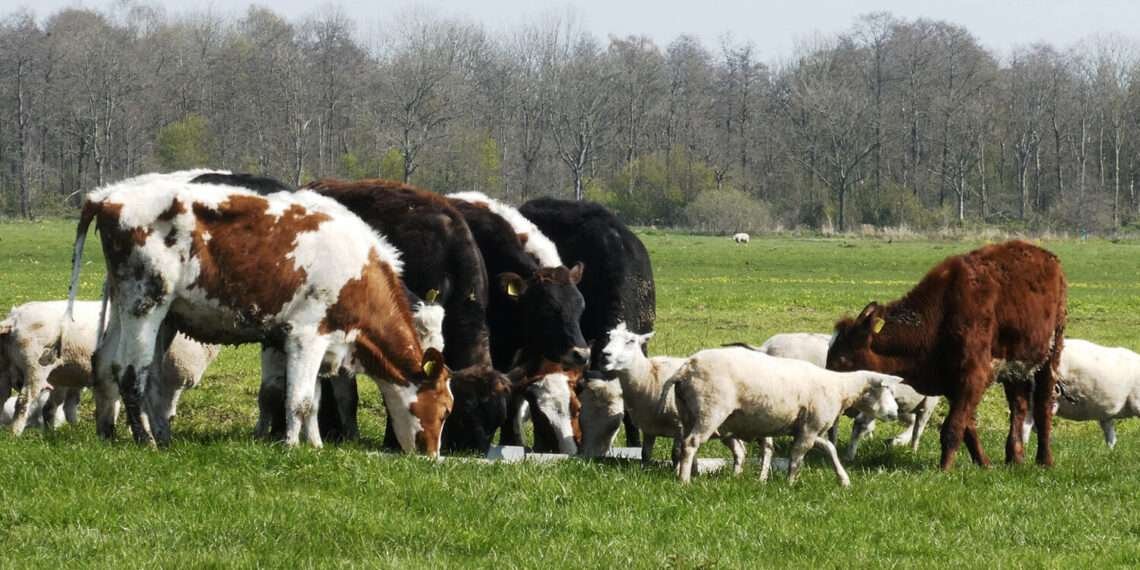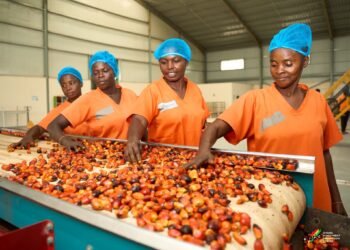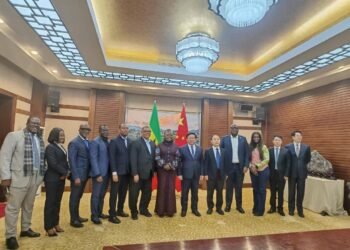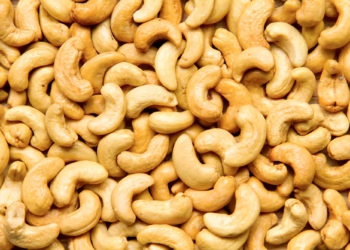The Government of Ghana has thrown its weight behind the second phase of the West Africa Livestock Marketing Support Programme (PACBAO), an Economic Community of West African States (ECOWAS) initiative designed to strengthen the livestock value chain and reduce dependence on imported meat.
The programme, valued at $10 million and funded by the Swiss Development Cooperation, will run from December 1, 2024, to October 31, 2028.
Minister of Food and Agriculture, Eric Opoku, announced the government’s endorsement during a knowledge-sharing workshop in Accra. He emphasized that PACBAO has already delivered remarkable results in Ghana under its first phase and promised greater commitment to ensuring the success of phase two.
Ghana currently spends around $375 million annually on importing meat to meet domestic demand. This heavy reliance on imports strains foreign exchange reserves and exposes the country to global price fluctuations. With PACBAO’s second phase, government officials hope to reverse this trend by boosting local production, enhancing quality standards, and modernizing the meat trade.
“The vision of PACBAO aligns perfectly with the ECOWAS Agricultural Policy,” Minister Opoku noted. “By building on the successes of the first phase, we are confident that Ghana can significantly reduce its import bill while creating jobs and improving food security.”
Successes of Phase One
The first phase of PACBAO, which ran between 2018 and 2023, transformed parts of Ghana’s livestock sector. The programme enhanced beef quality, modernized the red meat trade, and strengthened business linkages across the value chain.
Key outcomes included: Raising awareness about animal quality improvement; Enhancing feed and water resources for livestock; Boosting the supply of quality slaughter animals; Reducing livestock diseases and improving animal health and Building the capacity of farmers, traders, processors, veterinary staff, and animal health workers.
These achievements, particularly in the Northern and Upper East regions, have positioned Ghana as a promising hub for livestock development in West Africa.
ECOWAS and Partners Show Commitment
ECOWAS Resident Representative to Ghana, Ambassador Mohammed Lawan Gana, reaffirmed the organisation’s support for the livestock sector, stressing its role in creating employment opportunities for young people across West Africa.
“The ECOWAS Agricultural Policy transcends borders,” he stated. “Despite challenges such as insecurity and climate change, livestock farming holds enormous potential for economic transformation. PACBAO is an initiative that we believe can unlock this potential.”
Deputy Head of Mission at the Embassy of Switzerland to Ghana, Togo, and Benin, Janine Walz, described PACBAO as a true partnership among governments, ECOWAS, the private sector, and development partners. “Switzerland is proud to support this effort, and we will stand by it until the objectives are achieved,” she affirmed.
Boosting Value Chains and Cross-Border Trade
At its core, PACBAO seeks to create a robust livestock value chain that extends across the ECOWAS region. By promoting cross-border trade in livestock and meat products, the programme is expected to not only strengthen Ghana’s domestic market but also integrate it more deeply into West Africa’s agricultural economy.
Through improved veterinary services, disease control, and training for farmers, the initiative is projected to enhance food safety and increase consumer confidence in locally produced meat.
Agriculture remains the backbone of Ghana’s economy, employing a significant portion of the workforce. By revitalizing the livestock sector, PACBAO will not only reduce reliance on imports but also generate jobs for farmers, butchers, transporters, and processors. The ripple effect across the value chain is expected to stimulate rural economies, particularly in northern Ghana, where livestock farming is concentrated.
Minister Eric Opoku captured this vision, stating: “As we launch phase two, we must build on past achievements to ensure sustainable food systems, vibrant rural economies, and a future where Ghana is not overly dependent on imported meat.”
Ghana’s endorsement of PACBAO phase two represents more than just a policy shift—it marks a strategic move toward food sovereignty, job creation, and regional integration. With the backing of ECOWAS, Switzerland, and committed local stakeholders, the country is well-positioned to slash its $375 million annual meat import bill and transform its livestock industry into a growth engine for the future.
READ ALSO: NewGold ETF Plunges 3.7% as GSE Sees Sharp Drop in Trading Volume























